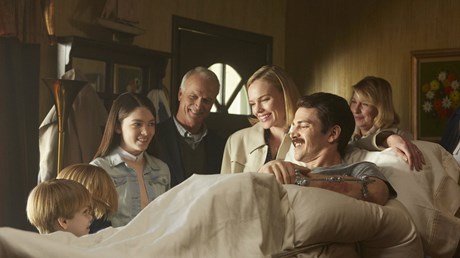Near-death experiences make for popular books and movies. But what should Christians do with them?

Don Piper’s story, now made visible in the movie 90 Minutes in Heaven (out this weekend), records his experience of “dying” as a result of a head-on car crash and experiencing some moments (90 minutes of them) of glorious encounter with “heaven” where God, a suffusing and overwhelming light, resided in the middle of the heavenly city.
In that near death experience (NDE), Piper saw and heard the voice of many of his fellow Christians as they were journeying toward the gate of heaven—but he never entered. A fellow pastor was praying for his recovery at the crash scene, and he found himself singing along with the pastor, back on earth.
The slow-developing movie focuses far more on the pain both Piper (Hayden Christensen) experienced and his family, especially his wife (Kate Bosworth), endured as he lay in hospital beds for months—suffocating with a desire to return to heaven and unwilling to communicate either about his NDE or what was happening in his soul. The slowness of the scenes accentuates the slowness of his recovery. But recover he did, to find a purpose in life—to tell people that heaven is real and that prayer really works.
Piper’s story is encouraging, and surely in the top two or three of hundreds of NDE stories I have read.
I do not disbelieve Don Piper’s story. He seems credible, and his experience is far from unusual. Mally Cox-Chapman, a skilled journalist, read and interviewed and tracked down one story after another. In her book The Case for Heaven: Near-Death Experiences as Evidence of the Afterlife, we read the fairly common pattern of near-death experiences:
- Feelings of peace and quiet
- Feeling oneself out of the body
- Going through a dark tunnel
Source: Christian Movie Reviews